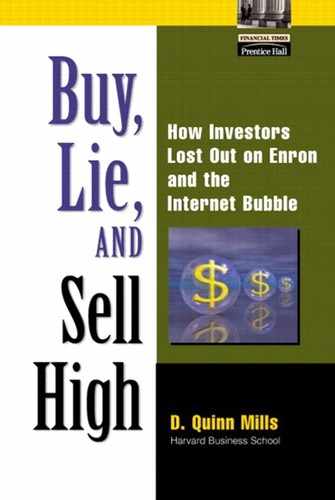Every Investor a Qualified Investor
The United States is good at what we may call microregulation—prohibiting insider trading and certain types of misrepresentation and fraud perpetrated against investors. Germany has less regulation of this type, and could benefit from borrowing from the American example.
But Germany is far better than the United States at what might be called macroregulation—protecting investors from adverse consequences—not just prohibiting certain kinds of self-interested dealings by those offering securities for sale. The United States could benefit from following Germany's example in this area.
The United States already has a mechanism at hand. For early stage investments, including investing in start-ups and venture funds, a person must fill out a lengthy statement which insures that he or she is a qualified investor—one who knows the risks involved and has enough financial assets to be able to make a very risky investment. It's the purveyor—the seller—of the investment who must obtain the qualification documents and file them with the appropriate authorities. A person who lacks the experience to understand the risks involved in an investment, and has too few assets to risk so much, is not permitted to make the investment. Similarly, when a person signs up as a customer for a brokerage firm, he or she is required to fill out forms. It is commonly asserted that customers regularly lie. Many brokerage houses have forms that ask “Are you an aggressive investor? A conservative investor?” A customer is asked to put down income, assets, and liabilities. Yet people seem often to inflate their assets, deflate their liabilities, and lie about their sophistication. Further, it often appears that brokers pay little attention to what is revealed about their customers. Somewhat similar things occur in Germany.
It follows that if qualification is to play an important role in securities market regulation, it must be taken more seriously. It's not hard to verify financial information—every bank lender asks account numbers from applicants for loans to verify assets claimed by aspiring borrowers—and often brokers, like bankers and venture capitalists, have a very good sense for when a potential investor is falsifying his or her financial situation and sophistication. It's not, therefore, difficult to give more value to qualification if regulators insist on it.
Because the qualified investor system was applied in only part of our financial markets during the Internet bubble (NASDAQ regulates the sales practices by securities dealers), it sometimes had a perverse and ironic impact on the average investor. He or she was denied an opportunity to participate directly in venture funds, but was allowed to buy shares in the same companies backed by venture funds when they went public. Since the companies went public far before they should have, then failed, the retail investor lost his investment; the venture firms made money on the same companies because they'd been allowed to invest at an earlier stage, but the retail investor had been excluded from that opportunity. In effect the current system, supposedly designed to protect the small investor, operated to destroy him or her. It kept the small investor out of the profit-making early stages of Internet investments, and allowed him or her to buy into the late stages during which the companies collapsed.
It's time to rectify this situation. America needs to take a leaf from the German book. All investment professionals should be required to qualify their customers for the sorts of investments being offered to them.
Further, America should add an extension to the German system—one that Germany should adopt as well, because of a problem illuminated by the Internet bubble. Investment professionals should be required to requalify their clients as conditions change materially. For example, when the mutual funds offered as part of annuity packages became much more highly speculative, as they did during the Internet bubble—both because of the inflation in the price of stocks and because of the types of stocks being incorporated into the portfolios of mutual funds offered for pension backing—then professionals should be required to requalify their clients for these investment products.
